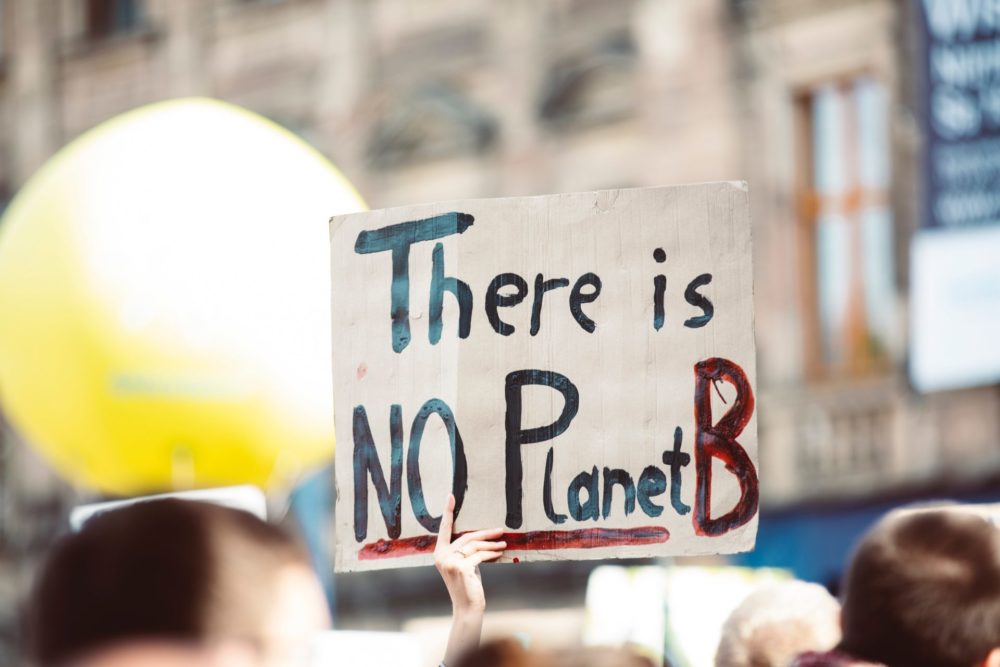Editor’s note: Aidan Mouat is co-founder and CEO at Hazel Technologies, based in Chicago, US. The views expressed in this guest article do not necessarily represent those of AFN.
Americans are now almost four times more likely to say they’re alarmed about the climate crisis than to be dismissive of it, according to a new study from the Yale Program on Climate Change Communication (YPCCC.) Public opinion on the issue is shifting rapidly. In 2014, YPCCC found the ratio of Americans alarmed about climate change to those who were dismissive was roughly one to one.
This attitudinal shift isn’t entirely surprising because since 2014, the effects of climate change have become increasingly worrying – and more visible. In the US, hurricanes return to the east and Gulf coasts year after year in greater frequency, and with more intensity. Out west, wildfires burn year after year. According to the California Department of Forestry & Fire Protection, fires have burned 3.7 million acres this year (more than 3.7% of the state’s roughly 100 million acres of land), making 2020 the most destructive wildfire season in California’s history.
As temperatures reach new highs around the world and the climate becomes increasingly volatile, human survival will depend on the ability of industries to innovate and adapt.
One of the most critical industries in this regard is agriculture. The one industry that touches every human life every single day, agriculture is inextricably linked to human survival because, after all, we must eat to live. However, climate change is already putting intense pressures on our ability to feed ourselves.
A UN report from 2019 warned that the global food supply is already in serious jeopardy. According to the report, the world’s land and water resources are being exploited at unprecedented rates – 15% of the world population live in places turning into desert, and soil is being lost between 10 and 100 times faster than it is forming. Intensifying changes in the climate will exacerbate these dangers. Events such as floods, drought, storms, and other extreme weather will apply even more pressure on the global food supply.
As worrisome as all that is, the good news is that the agriculture world has already begun to act. In AgFunder’s 2019 Agrifoodtech Investing Report, agrifoodtech investment continues to break records, attracting over $20 billion in 2019 – up more than 6x from 2012.
One place where this investment has been abundant is in US cities, which have seen a massive rise in urban agriculture. Techniques like hydroponics and vertical farming have allowed enterprising farmers to grow food in increasingly sustainable, often unconventional ways. Companies like Gotham Greens, AeroFarms, Bowery Farming, BrightFarms, and Plenty are all finding success by growing produce indoors in climate-controlled settings, while using less resources than conventional farming.
In more rural parts of the country we’ve seen investments into regenerative farming methods. This back-to-the-roots conservation and rehabilitation approach to food and farming systems focuses on the health of the soil and may actually work to reverse climate change. The new Netflix documentary Kiss The Ground does well to explore some of these issues, along with some of the young entrepreneurs like Pashon Murray from Detroit Dirt, who are working hard to create that change.
Regenerative agriculture has even taken hold in the corporate sphere. Cargill, the largest privately held corporation in the US in terms of revenue, announced a new initiative aiming to support farmer-led efforts to adopt regenerative ag practices on 10 million acres of cropland in North America by 2030. Similarly, General Mills has pledged to advance regenerative agriculture on 1 million acres of farmland by 2030.
Another area luring investment dollars is food waste. According to the US Department of Agriculture (USDA) somewhere between 30% and 40% of all food harvested goes to waste. And according to the UN Food & Agriculture Organization, every metric ton of food waste generates about 1.9 metric tons of carbon dioxide emissions. To put that in perspective: if food waste were a country, it would be the third largest emitter of greenhouse gasses behind the US and China.
In any other industry, this magnitude of waste would cause heads to explode. Imagine if Detroit was losing 30% to 40% of the cars they produced. The industry wouldn’t last a week. Obviously, weighing up autos and produce isn’t an apples-to-apples comparison, as produce degrades over weeks and days, not years. Still, it highlights the incredible challenge that lies ahead.
One of the organizations tackling this challenge is ReFED, a Chicago-based nonprofit committed to the reduction of food waste. ReFED has smartly identified 27 of the best opportunities to achieve this mission via their ‘Roadmap to Reduce US Food Waste,’ a first-of-its-kind economic analysis, making it easier for stakeholders across the food supply chain to meet a national 50% food waste reduction goal by 2030.
The company I started, Hazel Technologies, is also committed to a reduction of food waste. In our case, we use science, in the form of basic chemistry, to extend the shelf life of produce. Our USDA-approved solution is entirely atmospheric, makes no contact with produce, and leaves no residue – it’s simply an innovation to reduce waste. This year, Hazel is on track to treat over 3 billion pounds of produce, saving more than 240 million pounds of produce from going to waste, and reducing 200,000 tons of carbon dioxide emissions. And we’re just getting started.
In 2018, the UN panel on climate change warned that global temperatures could reach an irreversible tipping point in just 12 years if the world didn’t act dramatically to reduce the amount of carbon dioxide released into the atmosphere. Because of its inescapable demands on the environment, agriculture can — and must — lead in this fight.
Yet only through continued innovation and investment and reimagining how we grow and distribute our food can we fundamentally alter our relationship with the climate. And, hopefully, prevent that dangerous tipping point from coming to fruition.





